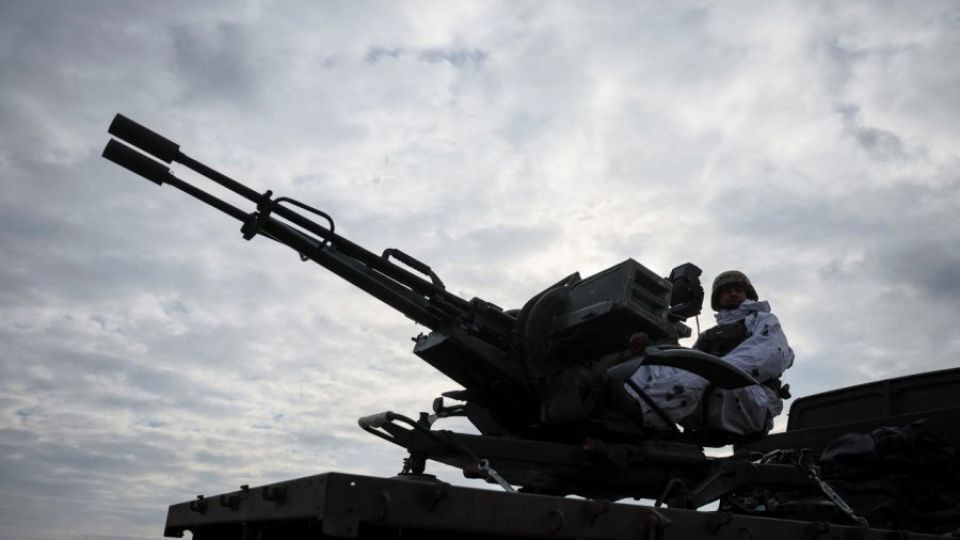February 14, 2023
SEOUL – South Korean President Yoon Suk Yeol has been under growing pressure from allies in the West to provide arms support to Ukraine in its war against the invader Russia, particularly after his attendance at the NATO summit last year and a visit by the US-led military alliance in Europe to Seoul last month.
In a speech at the Chey Institute for Advanced Studies in Seoul on Jan. 30, hours before the two met, NATO chief Jens Stoltenberg urged Yoon to “step up” to meet Ukraine’s pressing need for weapons.
Stoltenberg later briefed Yoon on the current situation in Ukraine and stressed the “armed aggression” was unacceptable. Yoon said South Korea would continue to do what it can to help the people of Ukraine.
But for the South Korean leader who is already facing myriad diplomatic challenges and the imminent threat of North Korea at the same time, it is still a difficult prospect for the world’s eighth-largest arms exporter to offer lethal aid to Ukraine, according to experts in Seoul.
“Expectations from Ukraine may rise as South Korea is strengthening its alliance with the US and also attended the NATO summit (last year) as an observer,” said Park Ihn-hwi, an international studies professor at Ewha Womans University.
“However, South Korea is already mired in serious diplomatic dilemmas, such as the US-China conflicts, thorny relations with Japan, North Korean threats and the Indo-Pacific strategies,” Park said. “We (South Korea) can’t afford any more dilemmas.”
Park noted that North Korea had fired around 70 missiles last year, including eight intercontinental ballistic missiles.
“If relations with Russia deteriorate and it does not agree to sanction the regime (North Korea), the situation on the Korean Peninsula could be further exacerbated,” he said.
Russian President Vladimir Putin said in October last year if South Korea decides to send weapons to Ukraine, it would “destroy our relations.”
Nam Chang-hee, a professor of political science at Inha University, said that South Korea should be able to convince its allies of the situation the country is in.
“We have to explain our geopolitical difficulties to the West, convincing them that we are next to the most dangerous country in the world,” he said.
Instead of sending arms, South Korea should continue to offer nonlethal and indirect support, according to Nam.
“We must do the best we can by authorizing or expanding the US taking of reserve ammunition and expand arms exports to the US and Europe,” he said.
“If we do our best in this way, there is room for the West to understand our position.”
US media outlets recently reported that South Korea has indirectly supported Ukraine via the US. The Wall Street Journal reported that under a confidential agreement, Korea would sell 100,000 rounds of 155 mm artillery ammunition to the US that were destined for Ukraine. The New York Times also reported that Washington turned to South Korea and Israel for supplies of shells for the war in Ukraine.
South Korea has also exported arms to European countries. Last year, South Korea signed a contract to export K2 tanks and K9 self-propelled howitzers worth $5.76 billion to Poland, which has been providing various military supplies to Ukraine. To Ukraine directly, it has provided nonlethal military supplies such as gas masks, bulletproof helmets, tents, blankets, combat rations and medicine.
Chun Chae-sung, a professor at Seoul National University’s department of political science and international relations, also echoed the need to expand indirect support to the country in the war while continuing its participation in an international sanctions against Russia.
“Although the Ukraine issue is an important international challenge, it has no direct security relationship with South Korea, which does not have hostile relations with Russia,” said Chun Chae-sung, a professor at Seoul National University’s department of political science and international relations.
“Rather than direct military support, we should participate in economic or nonmilitary sanctions in the frame of Russia’s violation of international laws.”
The pressure from the West, however, will grow on the Yoon administration as war continues. But the president should be careful when choosing his words, otherwise he could risk losing the international community’s trust.
“Since President Yoon has been constantly shouting for the defense of freedom, he could lose the trust of the international community if he does not take (corresponding) action,” said Wi Sung-lac, a former South Korean representative to the six-party talks and an ambassador to Russia.
In his inauguration speech last year, Yoon said if individual freedom is violated due to illegal acts by military power and dignified life, “All citizens of the world should help as free citizens in solidarity.”
He has also repeatedly used the words “freedom,” “value” and “international solidarity” speaking at home and abroad.
“At first, the Yoon administration seemed to have acted as if Korea was going to give weapons, and later turned passive,” Wi said. “So the US welcomed it very much at first and they were later disappointed as (Korea) took a step back. So they are now putting pressure on Korea again.”
Korea has touted itself as a “global pivot state,” stressing value diplomacy. But it has avoided most sensitive international issues, such as China’s aggression against Taiwan, China’s repression of Uyghurs in Xinjiang, the Crimean Peninsula and now Russia’s invasion of Ukraine, Wi said.
Because Korea is recognized as a nation by other countries that avoids sensitive issues, they will be more surprised if the country actually does something, he said.
“I understand the current agony of the Korean government, but it is important to strike a balance. We should either reduce rhetoric or increase action not to lose trust in the international community,” Wi said.
This is the first installment of a series of articles and interviews on Russia’s invasion of Ukraine marking one year on Feb. 24, to shed light on the brutality of the war and its complex impact on the international community and South Korea. — Ed.


